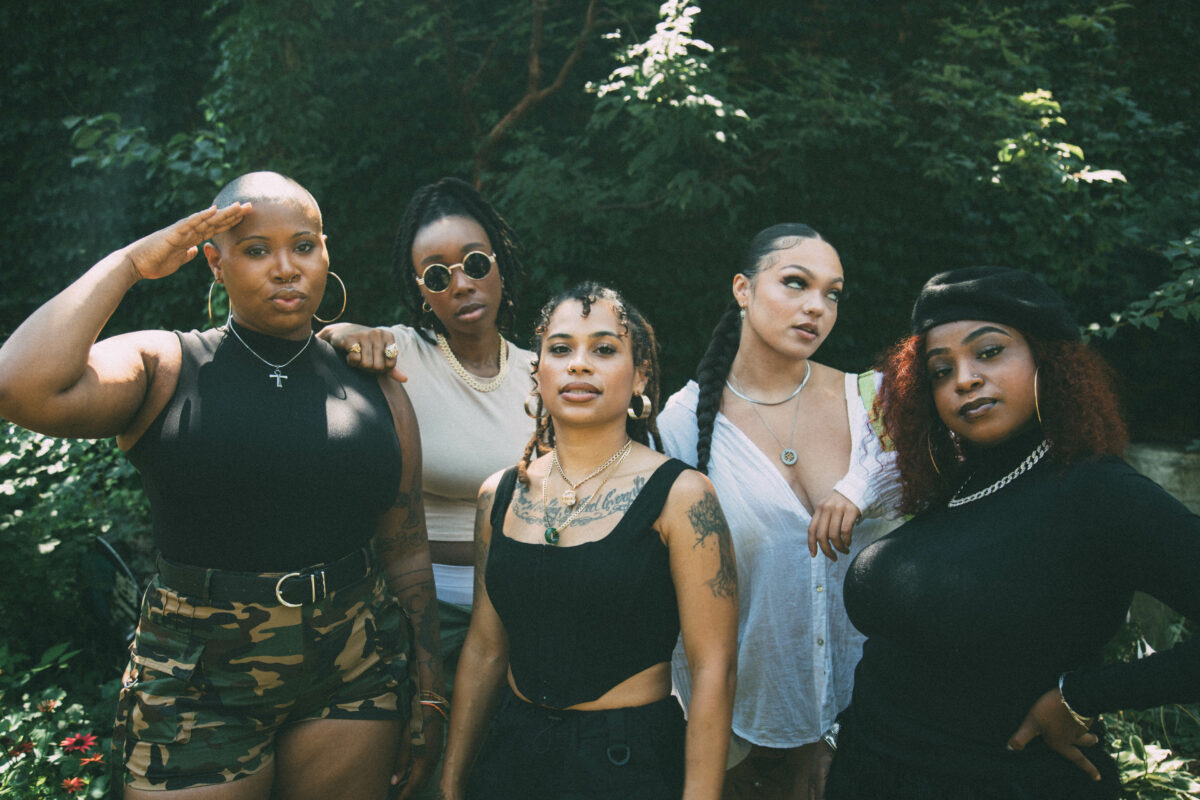The evolution of the female emcee has taken the hip-hop world by storm. The genre, which has historically been male-dominated, has had to make room for women who are not only bringing sex appeal and marketability, but skilled lyricism, to the forefront. “Femcees” across the world have begun to build an alliance. From Cardi B and Megan Thee Stallion who have worked on chart-topping hits like W.A.P and Bongos, to Latto who hopped on Chicago raptress Mello Buckzz’s “Boom Pt 2”, girl power is in full effect as artists continue to prop each other up.
More recently, the BET Hip-Hop Awards put together a group of cyphers, which included Lola Brooke, Scar Lip, Maiya the Don and Lady London, shedding light on a newer generation of women emcee’s that can walk onto any stage and rap just as good as, if not better than, their male counterparts.
After the rise of hip-hop artists like Lil’ Kim, Foxy Brown and Lauryn Hill in the 90s, the female voice seemingly faded into obscurity, leaving a void in the genre. But in the 2010s, Nicki Minaj stepped onto the scene, becoming one of the biggest hip-hop artists of all time and making it more palatable for more women across the world to leave their imprint.
South Side Weekly got the opportunity to sit down with Chicago women in hip-hop: Truthizmagic from the Austin area of Chicago, who is one half of the duo Mother Nature; Linda Sol from Humboldt Park; TWEAK’ G from the Auburn Gresham, Bronzeville, and Chatham neighborhoods; Dialect Tre, also from Austin; and Asha Omega who’s based on the Southeast Side.
They discussed the present and future of what it means to be a femcee, the unique position of being a Black woman in the industry, and what sets these Chicago women who rap apart.
There was a time in hip-hop where there could only be one female emcee in the top spot. Women rarely worked together, preventing sisterhood in the genre. During the 90s, Lil’ Kim and Foxy Brown famously had a personal beef that spilled over into their music.
After dissing Foxy Brown on Lil Cease’s 1999 song “Play Around”, the beef turned violent after shots were fired between the two emcees’ camps outside of New York’s Hot 97. Philly rapper Eve also admitted in 2018 that Lil’ Kim had snubbed her while the rapper was coming up in the late 90s and early 2000s.
In the mid-2000s, Nicki Minaj became the leading lady in hip-hop. After becoming the first lady of Lil Wayne’s Young Money record label, Minaj charted with hits like “Your Love” and “Right Thru Me”. As she garnered a solid female fanbase, she would reach a new level of respect from her male peers rapping on Kanye West’s “Monster”, featuring hip-hop heavy weights Jay-Z and Rick Ross. Many hip-hop critics declared she out-rapped all three men on the track.
But as her career blossomed, rumors swirled that Nicki wasn’t so nice to other female rappers. Lil’ Kim would call her out several times for what she called a lack of respect towards her. Bronx rapper Remy Ma had a decade-long beef with Minaj that started way before Minaj was a household name. In Nicki’s 2007 mixtape, “Playtime is Over”, Minaj threw jabs at Remy Ma seemingly letting the Bronx rapper know she was coming for the top spot. The beef continued after Remy Ma was released from prison; in 2017, Ma released a seven minute diss song titled “Sheether”. Although the beef became viral, Minaj’s success was too strong.
Minaj had secured her role as “Queen of Rap” until Cardi B was introduced to the world. After a few seasons on VH1’s Love and Hip-Hop, Cardi B’s popularity skyrocketed. Her hit song “Bodak Yellow”, released in 2017, not only hit number one on Billboard Charts, making her the first solo female rapper to do so since Lauryn Hill, but was also certified diamond. Her debut album “Invasion of Privacy” would also break records as the longest-charting album by a female rapper surpassing Lauryn Hills’ “Miseducation of Lauryn Hill”.
Cardi’s success would peak the interest of Nicki Minaj’s fan base “The Barbz”, shading the Bronx rapper and ultimately causing friction between the two emcees’s fan bases. Minaj and Cardi would later take part in their own beef following the recording and release of Migo’s song “Motorsport”.
Because the female voices in hip-hop have been few and far in between compared to their male counterparts, each beef affected how women were viewed in hip-hop. Their “beef” is not typically seen the same as the men’s, leaving room for the patriarchy in hip-hop to continue.
Chicago artists like Da Brat, who is from the West Side and is the first solo female rap artist to receive a platinum certification, and South Side native Shawnna, who was the first female artist signed to Def Jam South, helped open doors for Chicago Femcees. But Chicago has had a few of its own women in hip-hop, and much like Chicago in general, there is still a lack of respect and acknowledgment for the culture this city adds to hip-hop.
Dialect Tre, the youngest affiliate of theGr8thinkaz collective, has been working non-stop, having just dropped a new project titled The Villain Arc: A Story About Character and building with Chicago hip-hop artists like Freddie Old Soul.
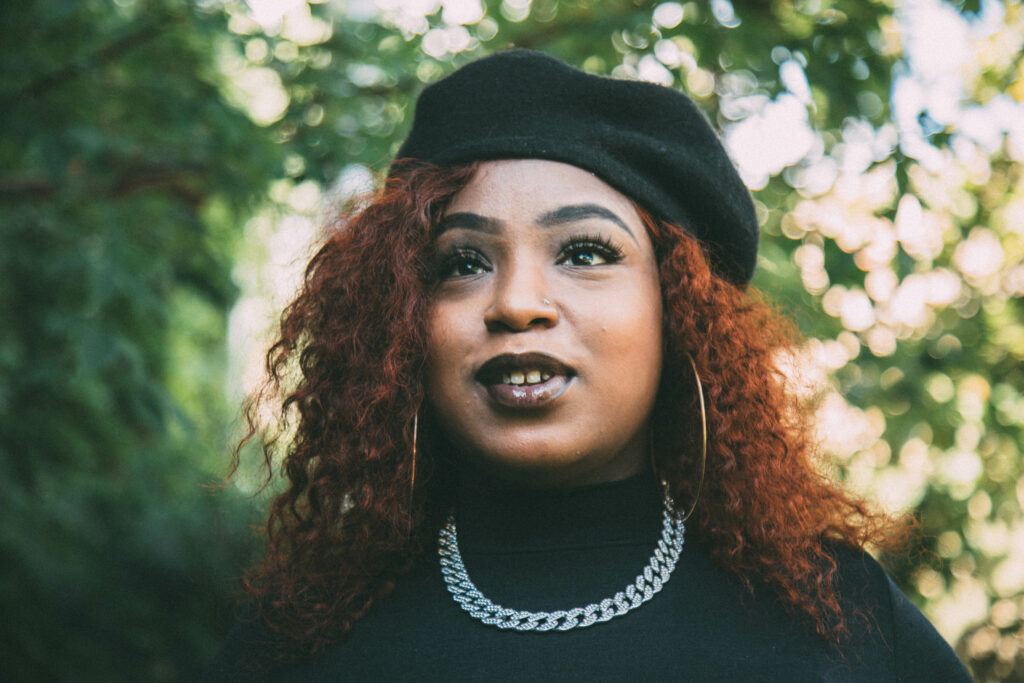
“We can give our flowers to a woman because women are what’s really holding the game down. And I say that now because, even with all the different rap genres that are happening right now, if you searched up what’s popular right now, it’s most likely gonna be a Brown [or] Black woman at the top of the charts,” said Dialect Tre.
Mother Nature, which is made up of the emcees Truthizmagic and Klevah Knox, have been forging a lane in the Chicago scene for years. With a new project in the works and rumors of features coming from Vic Mensa, the Closed Sessions-signed group are ready to be heard.
“I think with the music scene, just as a whole right now in Chicago, a lot of people are tapped in. So activists, community organizers, educators, and they also rap really, really well, you know what I’m saying? So it’s a beautiful thing to see this next wave that’s coming from Chicago, and it is being headed by women,” Truth said. “With everybody being authentic to who they are, and staying true to that, that’s what’s gonna make this next wave in Chicago even bigger than the last.”
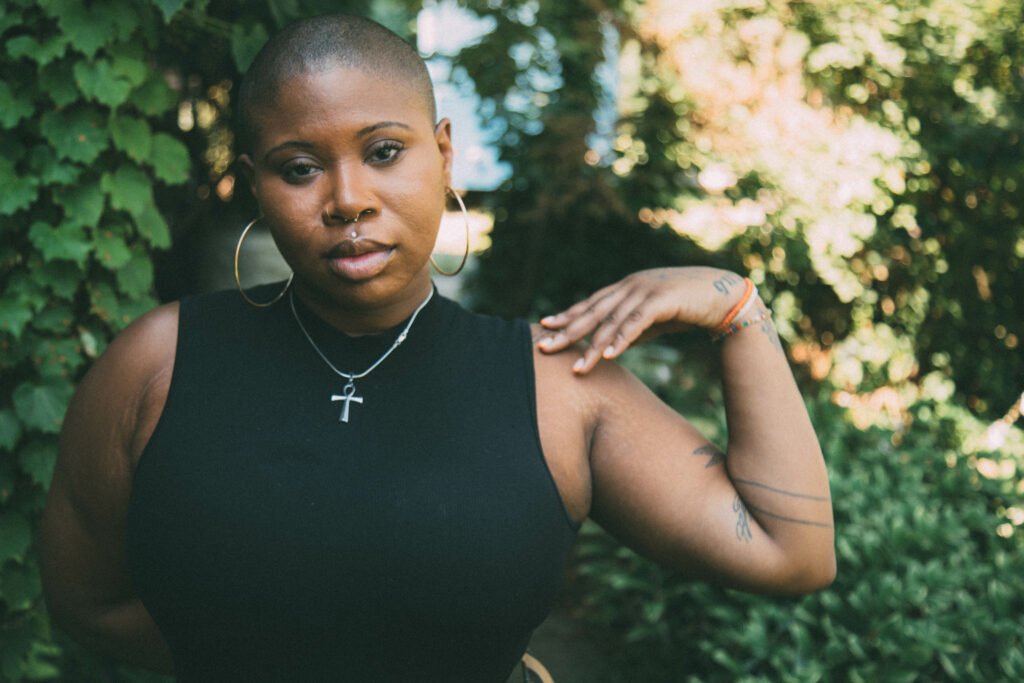
For some of these artists, falling in love with music and choosing hip-hop as a genre to pursue was an intentional choice. Others feel like hip-hop chose them.
Asha Omega is a well-known community member and emcee in Chicago who recently performed at the Museum of Contemporary Art (MCA) for the artist-led organization Chibrations. Asha was also featured in the Weekly’s Music Issue this summer.
“Hip-hop chose me, I’d like to say. I wanted to be the next Beyoncé growing up, but storytelling and poetry was my solace growing up, and during that time, being born in ‘98, hip-hop was changing so much and so fast. Many of my peers are the very same people that saw the gift I had and brought out the light of rhythm & poetry I had inside,” she said.
TWEAK’ G, known for both community organizing and for her lyricism on Rhymefest’s and Traxster’s newest album CHICAGO (A Side, B Side), spoke candidly about how she started rapping to prove a point.
“In 1998, I was in a foster home and the first song that I actually heard was Lauryn Hill and Nas’s… ‘If I Ruled The World.’ The second song I was introduced to was Deborah Cox, ‘Nobody’s Supposed To Be Here.’ I was like… if I ruled the world, kids wouldn’t be taken away from their family… So right then and there, I fell in love with music.”
She continued: “It wasn’t until sixth grade [when I saw] what I thought was a fight on 35th and Cottage was actually a group of people battle rapping. I tried to butt in on their shit, and they were like, ‘you can’t rap because you a girl.’”
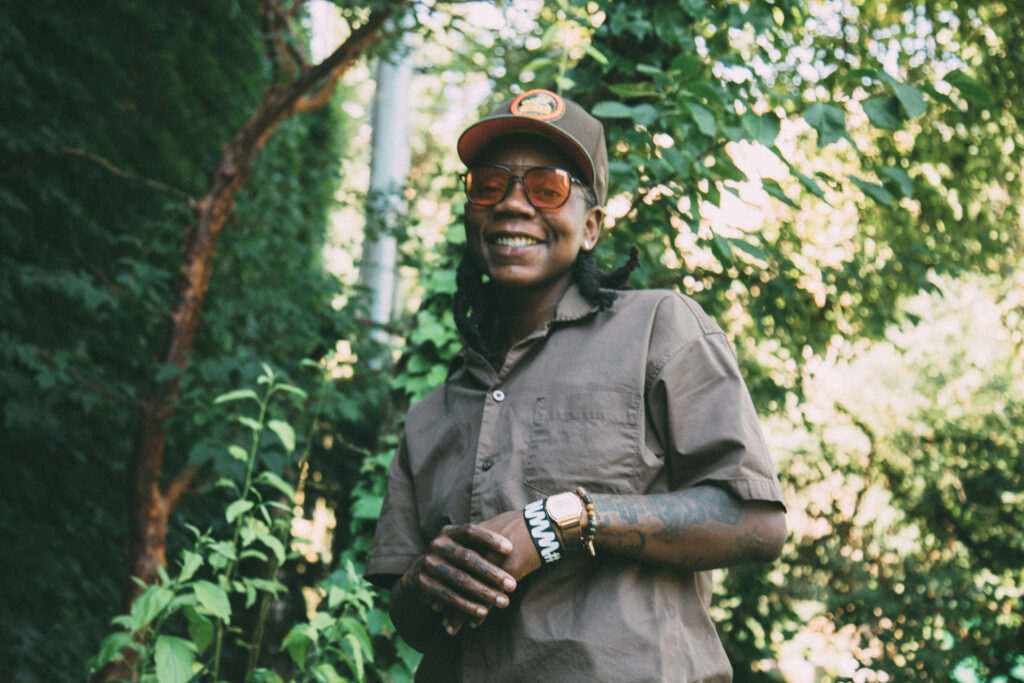
Her story is not uncommon. Patriarchy and misogyny in Black and Brown communities seeps into hip-hop; many women of color hear unwanted and unwarranted opinions on what they can and can’t do. But they are now transforming the genre into a vehicle of defiance for women who have something to say.
Linda Sol, who was recognized by WGCI this year as an artist on the rise, has been extremely busy. Having just finished a special music program at Harvard, where she met folks like Ab-Soul of Top Dawg Entertainment and Joey Bada$$, and with a new single out, she is positioning herself for bigger things next year.
“We have a broad spectrum of emotions that deserve to be broadcasted to the world. Men who are in technically the same subgenres of hip-hop may be in the same mixes on the radio as these women in the mainstream, [and] their music is allowed to talk about other stuff. They talk about dead homies, they talk about shit they went through as a kid, all on the same beats,” said Linda Sol.
“But if a woman does it—like when Megan is talking about things she went through on her last project—those songs are almost pushed to a different genre. They don’t get played on the radio the way that men do when they’re talking their shit.”
During the interview, the artists nodded in unison about the plight of Black women while participating in what was once seen as a man’s game.
“Just being a woman, and then being a Black woman in this space of creating music, especially in the rap realm, it gave me a voice. I wouldn’t want to say identity, but it gave me a point to be expressive in the ways I was allowed to,” said Dialect Tre. “[Being a Black woman too], I feel like it’s something that adds to our power and our magic.”
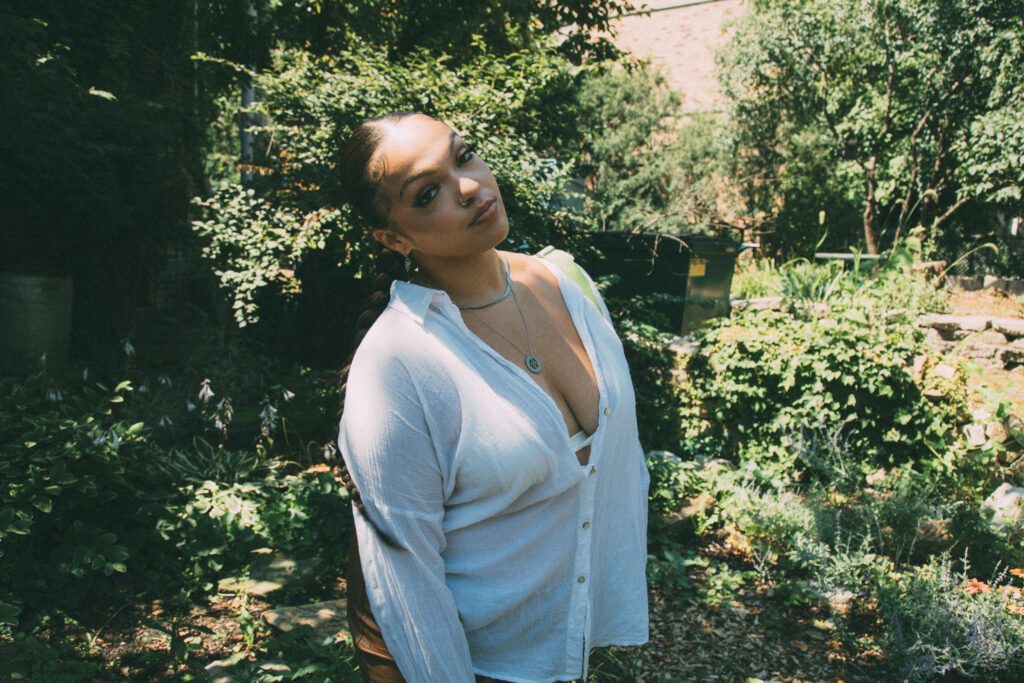
An artist who is more sexually frank in her music may not get the same respect as an artist who is more focused on the craft. Both can be successful in their own lanes, but due to the patriarchy, the level of respect for them may differ. But these days, that stigma is being dismantled by women who are standing together and uplifting each other’s music, no matter the content or style.
And as a whole, artists in the Chicago hip-hop scene are fighting to maintain integrity and credit within the culture.
“I think it’s time for the next wave of what’s after this era of reclamation, which is widening the depths, and I think that is something we carry, I don’t think men could do it for us. They didn’t let us do this,” Linda Sol said. “We did it…. You can’t ask for shit back. You got to take it back sometimes. And I think that women right now, we took that shit back.”
Whether it’s artists like Linda Sol who hopped on a track with Cece BKE, another female artist whose music reflects the streets with a touch of princess, or Mother Nature, who continue to find a sweet spot between underground and mainstream, Chicago femcees are using their power and flair to influence the city’s new generation of female rappers to be themselves and let their inner Chicago girl shine through their music.
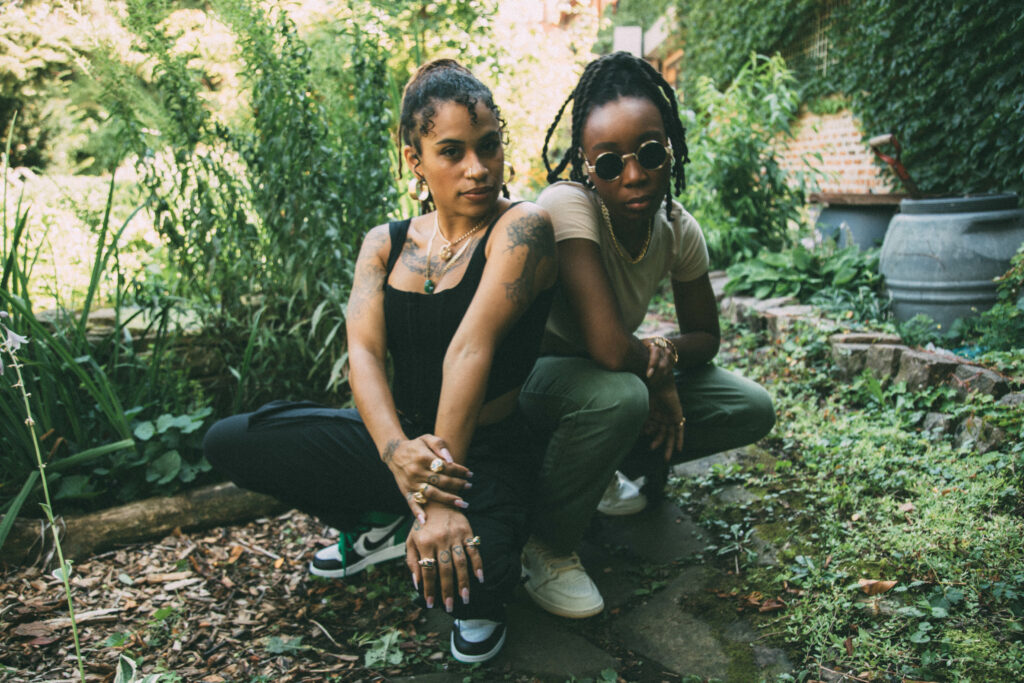
“I think Chicago is similar to New York in that it’s a melting pot of different people. And instead of outsourcing, we’re able to look inwards and look backwards to be able to see what’s next. So I think that’s what’s special. And I think people here just push their skill in a way that’s like, ‘I’m not trying to sound like the next person. I think that’s cool. And watch how I’m gonna do it…’” Linda Sol said.
“There is a certain confidence that we just got like, ‘I’m from Chicago, I don’t gotta be like anybody else, but the best version of myself.’ And I think that translates musically.”
Kia Smith, Jasmine Morales, and ThoughtPoet are music contributors at the Weekly.

